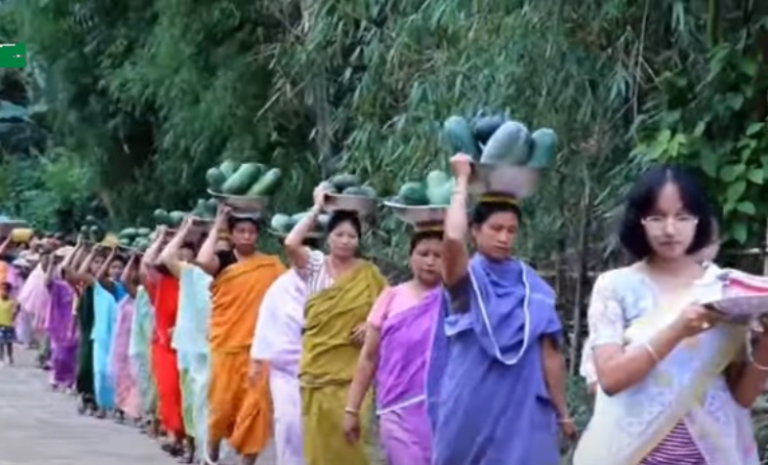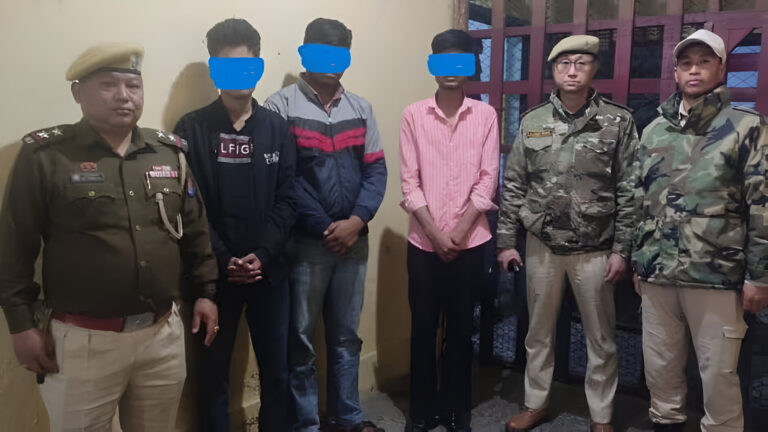Manipur CM N. Biren Singh Calls for Political Dialogue to Resolve Crisis
Summary of the News Article
Manipur Chief Minister N. Biren Singh has emphasized the need for political dialogue to address the ongoing crisis in the state. Singh’s call for discussion highlights the importance of peaceful negotiations to bring stability amidst the prolonged ethnic tensions and conflicts. His approach aims to foster unity and collaboration between the state’s diverse communities.
Manipur’s Crisis: The Urgent Need for Political Dialogue and Reconciliation
Introduction: The Complex Crisis in Manipur
Manipur, a state in northeastern India, has long been a hotspot for ethnic tensions, insurgent activities, and political instability. The region’s rich cultural diversity, with multiple ethnic communities such as the Meiteis, Kukis, and Nagas, also fuels complex challenges related to identity, land ownership, and political power. Recent unrest in Manipur has brought the state’s challenges to the forefront once again, with the ongoing crisis threatening to destabilize the region even further.
Amidst this turmoil, Manipur’s Chief Minister, N. Biren Singh, has called for political dialogue as a way to address the unrest and create pathways toward peace and reconciliation. Singh’s appeal for peaceful negotiation stands as a beacon of hope in a time when tensions continue to rise. But why is political dialogue so crucial, and how can it help resolve the deep-seated issues plaguing Manipur?
The Current Crisis: A Deep-Rooted Conflict
The unrest in Manipur has not developed overnight. It stems from long-standing ethnic rivalries, political differences, and competition for resources. The most significant conflict revolves around land and autonomy. The Meiteis, who predominantly live in the valley regions, and the Kuki and Naga communities in the hill districts, have been at odds over these issues for years.
While there have been several attempts to mediate and bring peace, the region has often seen flare-ups of violence, especially when communities feel their rights and interests are under threat. Political instability, combined with insurgency and the ongoing clamor for greater autonomy by different groups, has only exacerbated the problem.
CM N. Biren Singh’s Call for Political Dialogue: A Path Forward
Recognizing the fragile state of affairs in Manipur, Chief Minister N. Biren Singh has stepped forward with a strong call for political dialogue as the only viable solution to the ongoing crisis. His approach rests on the belief that peaceful conversations between different communities and political stakeholders can pave the way for long-term solutions.
The core of Singh’s argument is simple yet powerful: dialogue can break the cycle of violence. Instead of resorting to insurgency and violent conflict, political discussions allow communities to express their grievances, negotiate peacefully, and find common ground.
Political dialogue has proven effective in resolving conflicts globally, from post-apartheid South Africa to Northern Ireland’s Good Friday Agreement. By advocating for this approach in Manipur, Singh hopes to create an atmosphere of mutual trust where the state’s various ethnic groups can come together to work toward a peaceful future.
The Importance of Inclusive Dialogue
One of the most important aspects of Chief Minister Singh’s proposal is the idea of inclusivity. Manipur’s crisis involves multiple stakeholders, including political leaders, community leaders, insurgent groups, and the general population. For political dialogue to be successful, all of these voices need to be heard.
Inclusive dialogue means involving representatives from the Meitei, Kuki, Naga, and other minority groups in the state, as well as addressing the concerns of local activists, civil society organizations, and even insurgent factions who often have their own political goals.
In many cases, insurgents are driven by political motives that are often ignored or misunderstood by the government. By bringing them to the negotiation table, Singh hopes to turn potential enemies into partners in peace, creating a more holistic solution that benefits all of Manipur’s citizens.
The Role of Civil Society and Grassroots Movements
Another critical aspect of achieving peace in Manipur lies in engaging civil society. While political leaders may steer the ship, it’s often grassroots movements and local community organizations that play a significant role in pushing for lasting peace and reconciliation.
Civil society has the ability to facilitate dialogue between warring communities and act as mediators in times of conflict. Organizations working in Manipur’s conflict zones have often been the first to address issues such as displacement, loss of livelihood, and trauma among affected populations. Encouraging these groups to actively participate in the dialogue process ensures that the voices of the people are heard, not just those of political elites.
Civil society also acts as a bridge between the government and the people, fostering trust where it might be lacking and ensuring that peace efforts are sustainable in the long term.
Learning from Past Failures: Why Political Dialogue is Crucial Now
This isn’t the first time that Manipur has experienced conflict, and it’s not the first time political dialogue has been suggested as a solution. However, many previous peace efforts have failed due to a lack of sustained commitment from stakeholders and the tendency for talks to break down over competing interests.
In the past, peace talks were often interrupted by violence, with insurgent groups returning to armed conflict after feeling that their demands were not met. The fragility of these peace processes underscores the importance of committing to dialogue in a sustained and genuine manner. This time, however, the stakes are higher, and there is a greater awareness of the need for inclusivity, trust-building, and long-term planning.
N. Biren Singh’s current push for dialogue is more comprehensive, aiming to include all relevant stakeholders, whether political, social, or insurgent. By addressing the root causes of the conflict—land disputes, ethnic rivalry, political power struggles—this dialogue has the potential to be different, offering a way out of the cycle of violence that has gripped Manipur for so long.
Building a Peaceful Future: The Role of Education and Youth Engagement
Another critical aspect of Chief Minister Singh’s vision for peace involves youth engagement and education. Manipur’s younger generation has grown up in a state often defined by violence and division. For peace to be sustainable, it is crucial to change this narrative.
Educational initiatives that teach the values of tolerance, diversity, and peaceful coexistence can have a long-lasting impact on Manipur’s future. Schools and colleges should be seen not just as places for academic learning but also as spaces for nurturing future peacebuilders.
By involving Manipur’s youth in the peace process, the state has the opportunity to reshape its future. Young people have the power to challenge entrenched beliefs and prejudices, bringing fresh perspectives to age-old conflicts. Encouraging them to participate in political dialogue and community-building efforts is essential to ensuring that peace is not just a temporary fix but a long-term reality.
The Impact of Economic Development on Peacebuilding
Another key factor in resolving Manipur’s crisis is economic development. A significant portion of the unrest in the state can be traced to economic inequalities and the lack of opportunities for certain communities. Addressing these issues through job creation, infrastructure development, and improved access to resources can help reduce tensions.
Economic development initiatives that focus on inclusive growth—ensuring that all ethnic groups benefit from progress—can create a sense of shared destiny among Manipur’s diverse communities. By providing people with a stake in the state’s future, economic development can help foster a sense of unity and reduce the appeal of insurgent activities.
Additionally, economic development programs that focus on conflict-sensitive approaches can ensure that resources are distributed fairly, addressing the root causes of many of the conflicts that have plagued Manipur for years.
Conclusion: A Path Towards Lasting Peace
Manipur’s Chief Minister N. Biren Singh’s call for political dialogue is a step in the right direction. While the state continues to face significant challenges, the focus on dialogue, inclusivity, and reconciliation offers a viable path toward peace. The involvement of civil society, youth, and economic development programs adds further weight to this effort.
Ultimately, the road to peace in Manipur is long and complex, but with sustained commitment and a willingness to engage in meaningful dialogue, the state can move toward a future where violence and division no longer define its identity.
FAQs
- What is the primary cause of the ongoing conflict in Manipur?
The conflict in Manipur stems from ethnic tensions, political instability, and disputes over land and autonomy, primarily between the Meitei, Kuki, and Naga communities. - Why has Chief Minister N. Biren Singh called for political dialogue?
N. Biren Singh believes that political dialogue is crucial for addressing the ongoing crisis, allowing various stakeholders to come together to discuss solutions peacefully. - How can civil society contribute to peace in Manipur?
Civil society organizations play a critical role in facilitating dialogue, mediating disputes, and supporting communities affected by the conflict. - What role does economic development play in peacebuilding?
Economic development can help address the root causes of conflict by creating opportunities, reducing inequalities, and fostering unity among different ethnic groups. - How can Manipur’s youth contribute to the peace process?
Engaging Manipur’s youth in education and peacebuilding initiatives can help change the narrative of violence and division, creating a more peaceful future for the state.




